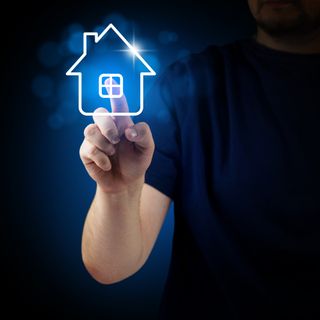HyperCat Summit 2015: The IoT world must empower society to succeed
ARM’s Stephen Pattison spoke about the future of IoT at the recent 2015 HyperCat Summit

The Internet of Things (IoT) should be used to empower people and enhance their lives through complementary and assistive technologies rather than ones that take over or completely replace the current ways of doing things.
So claims Stephen Pattison, VP public affairs at ARM, who made his comments while speaking at the HyperCat Summit 2015 in Westminster this week.
Despite prevalent fears that full integration of IoT technologies into our everyday lives could lead to job losses and other negative consequences, he believes the power lies not with the machines, but with people.
"As I often say, if the IoT world does not empower people, it will have failed," Pattison said. "That's important because there's a suspicion out there that the IoT world will disempower people. It will take jobs; it will take freedom; it will take our ability to organise our own lives wrong.
"If you give people more transparency and better knowledge and more control, I'm confident they'll share more data not only to their benefit, not only to the benefit of the communities they live in, not only to the benefit of business, but to the benefit of society as a whole."
Founder of AlertMe and 1248, Pilgrim Bear, also spoke on the day, and talked about the importance of interoperability between connected devices if IoT is to move forwards.
"Although everyone uses similar architectures, unfortunately everyone uses slightly different technologies, slightly different standards, and the result is that nothing works with anything else," he said.
Get the ITPro. daily newsletter
Receive our latest news, industry updates, featured resources and more. Sign up today to receive our FREE report on AI cyber crime & security - newly updated for 2024.
"Everyone's stuck within their own silos, and that's problematic for the vendors because it means they have to do everything themselves and can't buy in things from other people, but it's also a problem for the end customer because, as an end customer I can't just mix and match solutions from different vendors. This is not the IoT."
To push IoT forwards, Pattison continued, we need to collectively let go of the notion that smart cities will only consist of household items, such as the fridge and the toaster, talking to each other.
He said: "I think the smart city issues bring out that point about how the IoT world will be a world where we can use resources more effectively, and deliver services more efficiently and that's what this is really all about. We know some of the things that the IoT technology will be able to do for smart cities, all these things that are flitting round behind you."
Using public transport as an example of one industry that could benefit hugely from IoT, he highlighted the importance of the technology and business worlds working closely together.
"If you look at smart transport, most city councils are very concerned about integrating transport systems, and what a lot of them mean by this is that they want to get people out of their private cars, and they want to get them onto public transport.
"In order to do that, you need a system which has sensors, which tell you what the traffic flows are like. You need a system that has connectivity that enables you to give that information to people sitting in their cars or about to leave their homes in real time with real explanations of the consequences."
But with questions around IoT come equally touch questions about security, and Pattison offered his thoughts on how privacy and data security will tie into the success of smart cities.
"Security spits into two data security is all about making sure no one hacks into your data as it travels from A to B or its in storage," he said. "Data protection, the other wing of this, is something quite different. Data protection is all about making sure that the people who get your data authorise-ably do with it only what you want and nothing else.
"The technology can take care of data security, but we need something different to take care of data protection. If we don't get this data protection right, we will not liberate data to drive the smart world we're all trying to create, we won't realise its full benefits."
Caroline has been writing about technology for more than a decade, switching between consumer smart home news and reviews and in-depth B2B industry coverage. In addition to her work for IT Pro and Cloud Pro, she has contributed to a number of titles including Expert Reviews, TechRadar, The Week and many more. She is currently the smart home editor across Future Publishing's homes titles.
You can get in touch with Caroline via email at caroline.preece@futurenet.com.





